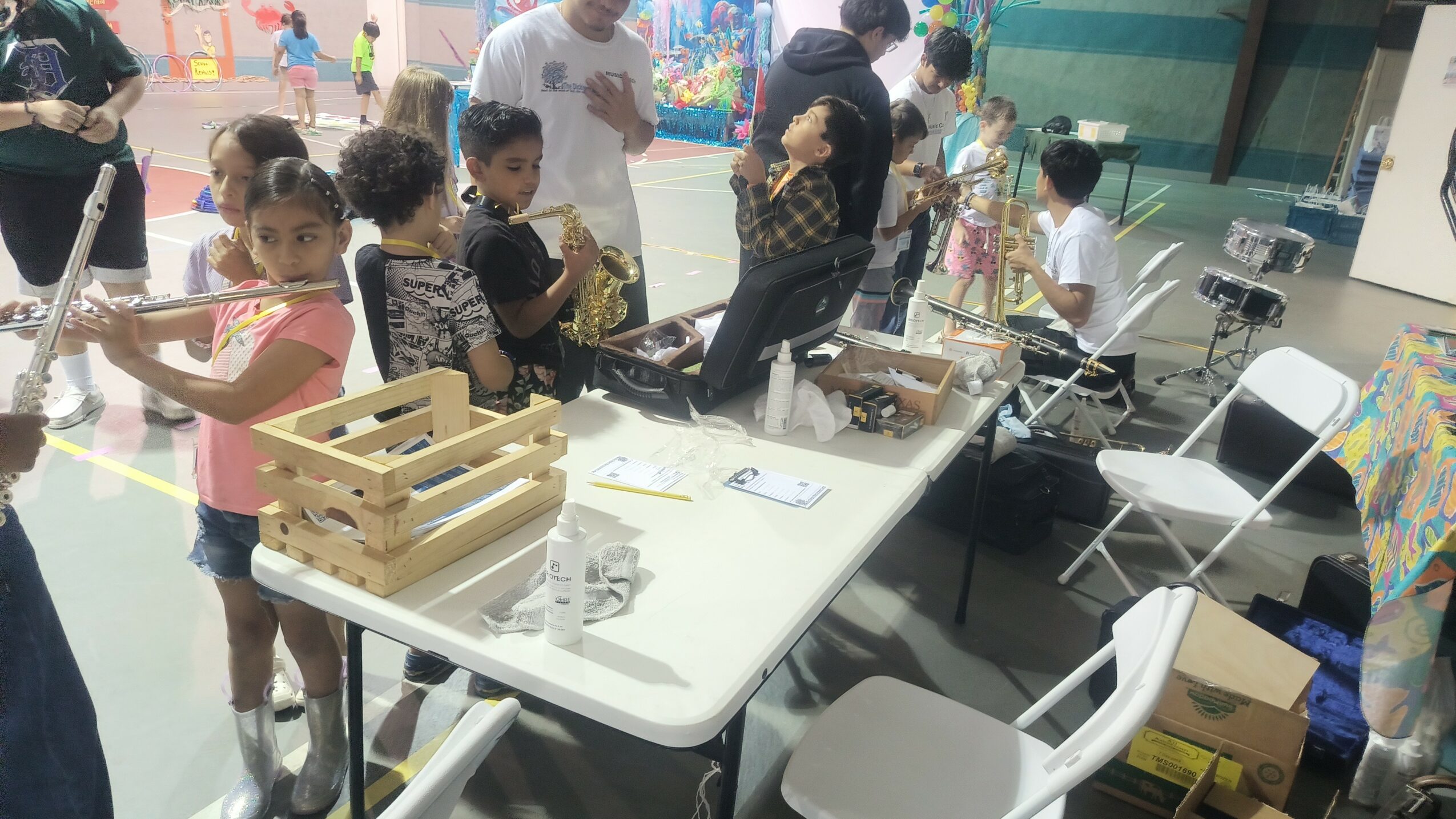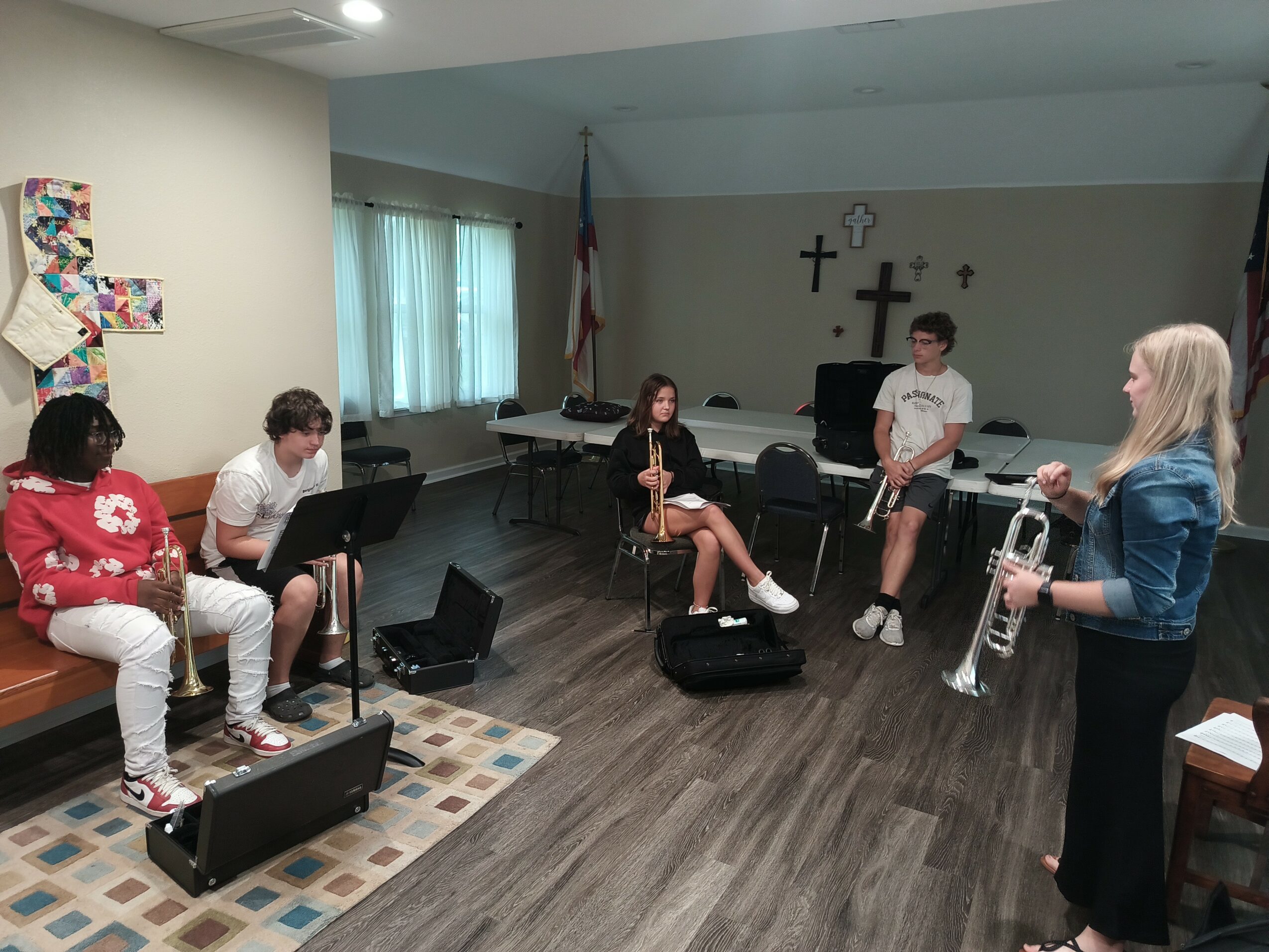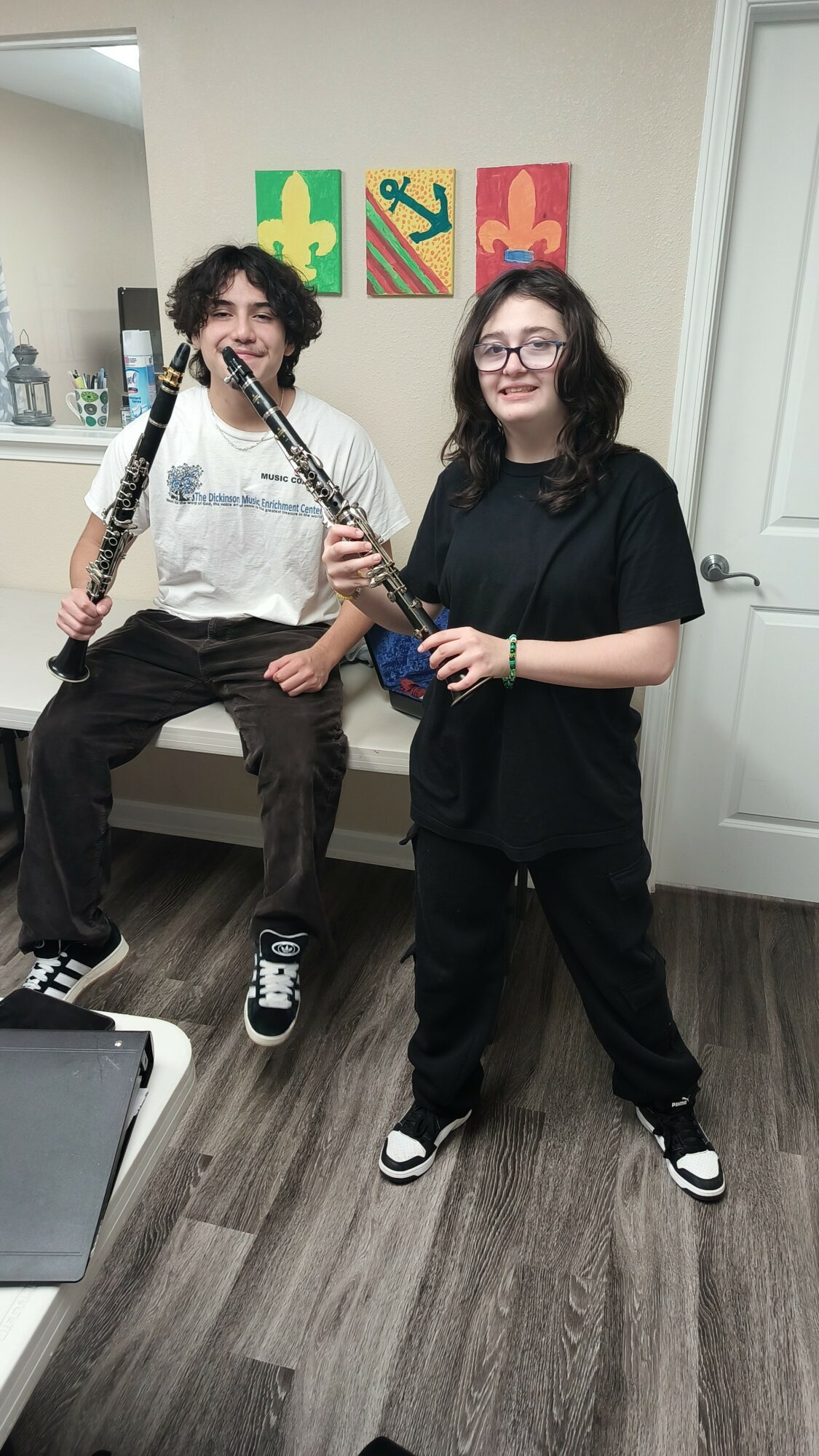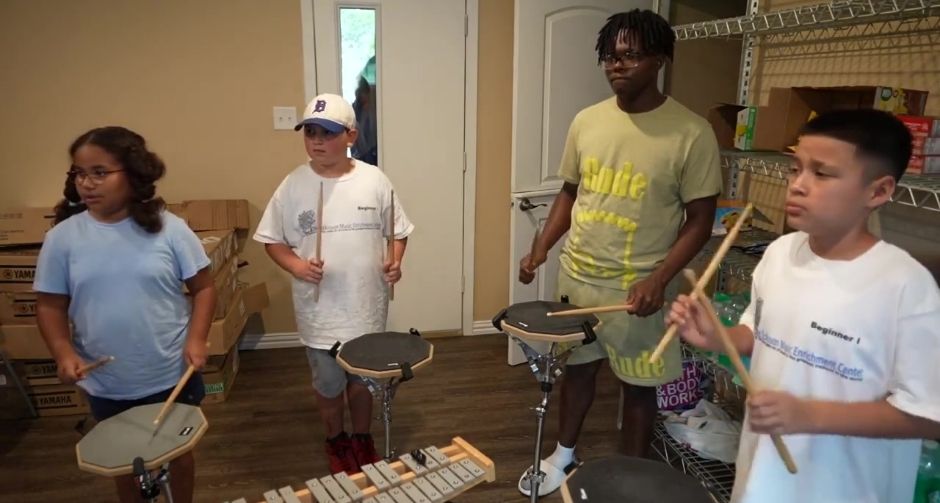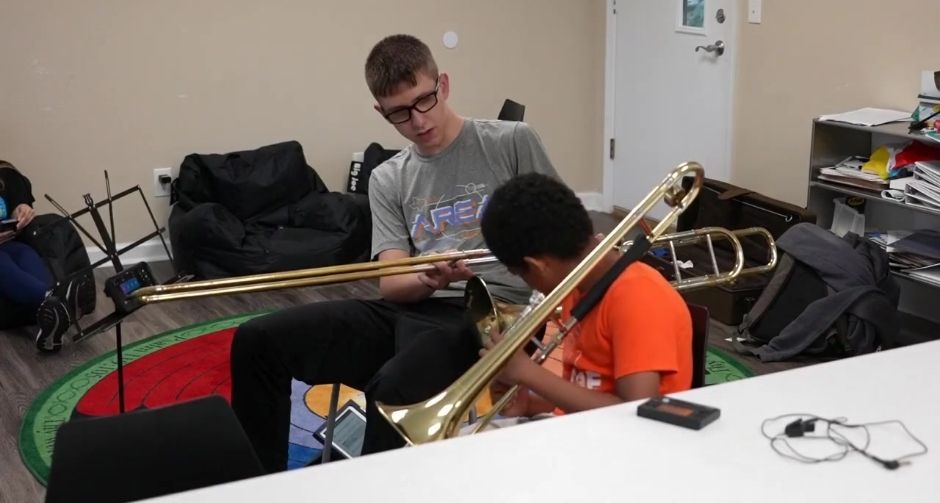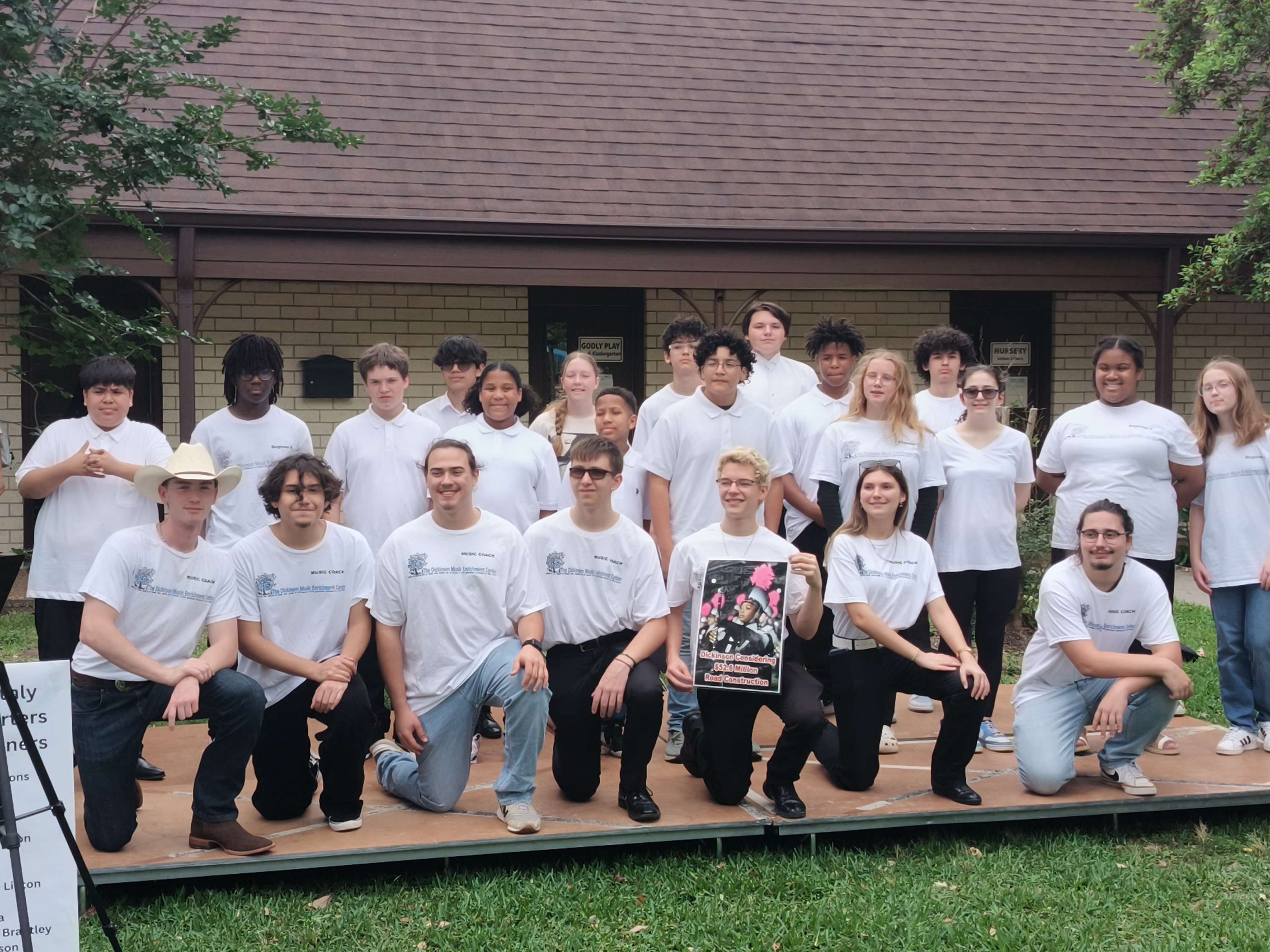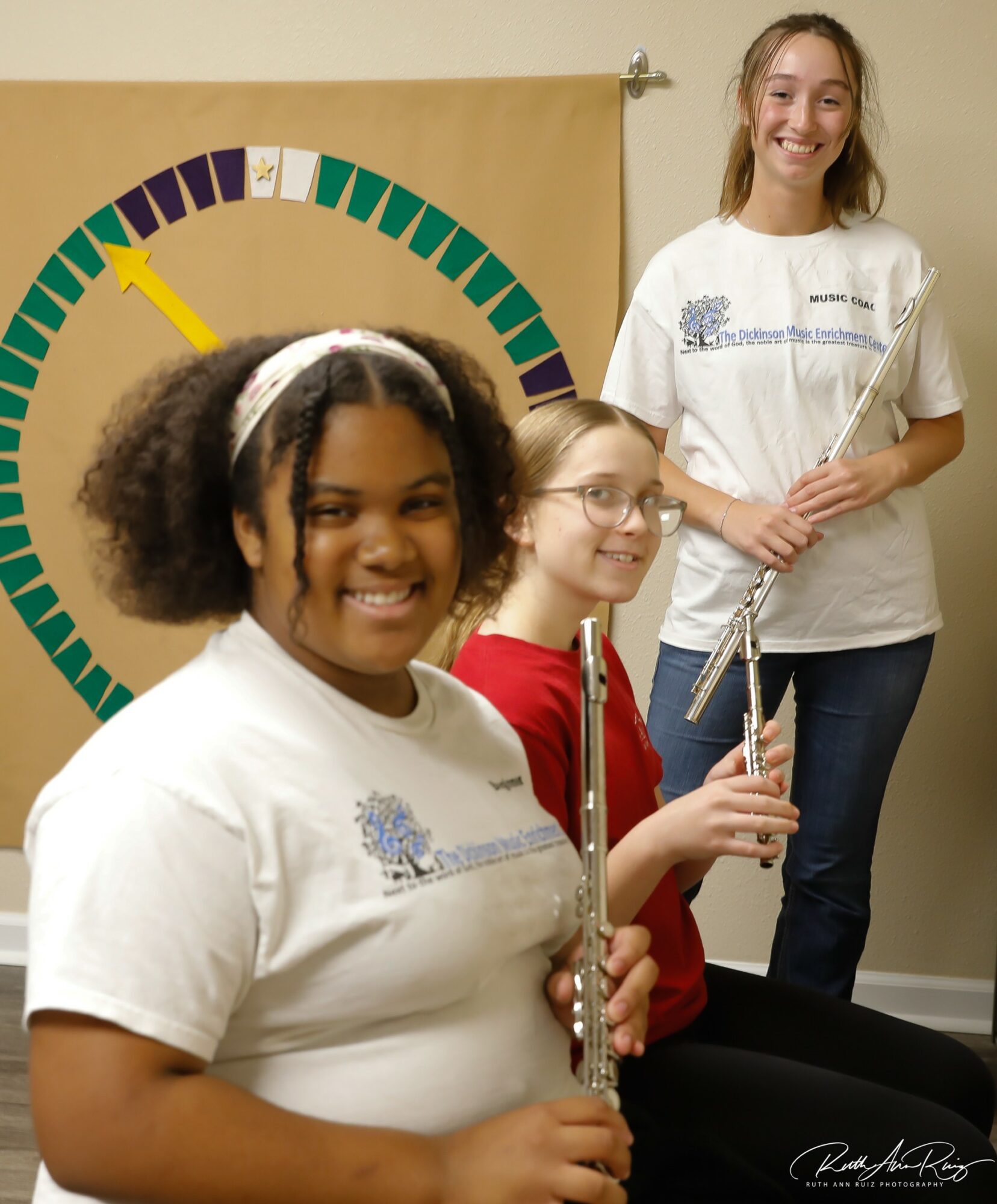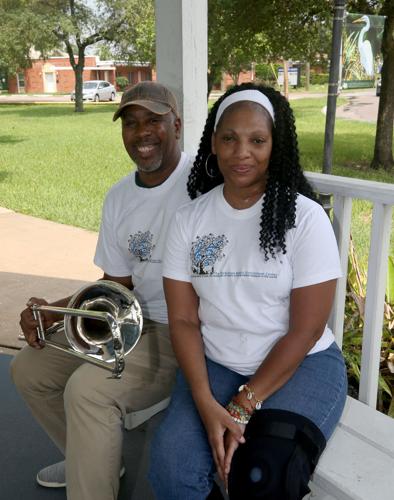

Today we’d like to introduce you to Sandra Lee.
Hi Sandra, thanks for sharing your story with us. To start, maybe you can tell our readers some of your backstory.
The Beginning
TDMEC was founded in February 2022 with a simple but powerful vision: to remove barriers to music education for underserved children in Dickinson, Texas and surrounding areas. From the start, the mission has been to provide free, high-quality after-school lessons, beginning as early as 4th grade, so that every child has a fair chance to experience the transformative power of music regardless of their family’s financial situation.
The founders—Charles Marcus and Sandra Lee—understood these challenges firsthand. They recognized how difficult it can be for families to cover the costs of instruments, reeds, mouthpieces, and other supplies, and they were determined to build a program that removed those obstacles.
The Inspiration of Ziyanna Jones
A central inspiration behind TDMEC is the life and legacy of Ziyanna Jones, a passionate young clarinetist from Dickinson. Ziyanna was known for her deep love of music, her leadership as a section leader, and her dream of becoming a music educator. Tragically, she was killed in a hit-and-run accident on Halloween 2022.
Though her life was cut short, Ziyanna’s spirit continues to shape the heart of TDMEC. The organization honors her by cultivating the same passion for music and leadership in other students—especially those who might not otherwise have access to lessons, instruments, or mentors. Naming the future Harbour Playhouse restoration project The Ziyanna Jones Harbour Playhouse of the Arts is another way her memory lives on as part of TDMEC’s foundation.
Growth and Today
What began with 13 students in its first academic year quickly expanded—today, TDMEC serves more than 35 students, employs high school band section leaders as coaches, and has even launched the Galveston County Youth Ensemble, providing a pipeline of leadership and performance opportunities for young musicians.
Events like the National Native Heritage Month Celebration and partnerships with schools, churches, and local organizations have allowed TDMEC to grow its reach, increase cultural engagement, and connect with the broader community.
Where We Are Now
TDMEC is not just a music program—it is a community movement that embodies resilience, mentorship, and cultural celebration. The organization continues to expand with plans for a second location in South Houston, major projects like the Harbour Playhouse restoration, and ongoing efforts to secure grants and funding that sustain and grow its mission.
At its core, everything TDMEC does is still rooted in the belief that every child deserves the gift of music, and that the memory of students like Ziyanna Jones should inspire future generations to find joy, purpose, and leadership through music.
Would you say it’s been a smooth road, and if not what are some of the biggest challenges you’ve faced along the way?
Obstacles and Challenges
The journey to build TDMEC has been incredibly rewarding, but it has not been without challenges. Starting a nonprofit from the ground up is never a smooth road, and for us, the hurdles have been both practical and financial.
One of the greatest obstacles has been financial barriers—many of the families we serve cannot afford the cost of instruments, mouthpieces, reeds, or music books. That meant TDMEC had to find creative ways to secure resources, from repurposing broken instruments into art pieces for fundraising, to seeking grants and community partnerships to keep lessons free for every child.
Another challenge was figuring out how to staff the program with qualified instructors. Hiring professional teachers full-time was not realistic in the beginning, so we developed an innovative model of using junior and senior high school band section leaders as music coaches and mentors for the younger students. This not only provided consistent instruction but also created a powerful pipeline of youth leadership, where older students gain valuable teaching experience while serving as role models.
Infrastructure and logistics have also been ongoing hurdles. In the early days, we didn’t have a dedicated facility, transportation, or even the basic supplies needed to run consistent programming. We relied heavily on the generosity of partners like Holy Trinity Episcopal Church, which opened its doors to us free of charge. Transportation continues to be a challenge, with many students depending on shared rides to participate fully.
Despite these obstacles, each struggle has shaped the organization’s identity. The financial challenges made us more innovative, the lack of infrastructure drew us closer to community partners, and the instructor model helped us build a sustainable foundation of mentorship and leadership within the student community.
As you know, we’re big fans of you and your work. For our readers who might not be as familiar what can you tell them about what you do?
Sandra Lee
Sandra Lee built her career in retail management, spending more than a decade as a manager at Walgreens. In that role, she oversaw daily operations, led teams, managed vendor relationships, and ensured regulatory compliance, all while maintaining a strong focus on customer service. Known for her ability to develop new supervisors into confident leaders, Sandra is most proud of the cohesive teams she built and the consistent results they achieved. Even after a workplace injury impacted her physical health, she carried forward her skills in organization, training, and operational efficiency, continuing to apply her resilience and systems-driven mindset in meaningful ways.
Charles Marcus
Charles Marcus serves full-time as an engineering technician for the City of League City, where he supports infrastructure, drainage, and development review. His work spans site plan evaluation, FEMA floodplain compliance, SWPPP review, and quality control using tools like Bluebeam. Charles is recognized for translating complex technical requirements into clear, actionable guidance for developers, contractors, and residents. He takes pride in creating processes and templates that streamline reviews and improve interdepartmental communication. What sets him apart is his balance of technical precision with practical communication—ensuring projects meet compliance standards while also moving forward smoothly.
Can you tell us more about what you were like growing up?
Sandra Lee
I had my own personality growing up and didn’t like to be told what to do. I loved playing all the sports the boys played just to prove I was strong. But when I went to my grandparents’ house, I could switch gears—I was all lady-like, learning to cook different foods in the kitchen. I was a straight-A student until seventh grade, when my father passed away. After that, I kind of checked out. No one said anything, so I felt like no one noticed. That’s when I became super independent.
After high school, all I wanted was to join the Air Force, but my mom didn’t want me to. So I stayed home, drifting for a while without doing much that felt worthwhile. Eventually, I moved to Texas, got married, and started a different life—though the Air Force was still on my mind. One of my favorite times was when I opened a daycare in my home, Coco’s World, named after my daughter. I started it when she was three because I didn’t want to send her to daycare—I was protective. I loved it. I had about 10–13 little ones at a time, from six months to five years old. I kept that going until my daughter finished first grade.
After that, I worked at the daycare she went to and taught preschoolers. I even taught myself ASL and some Spanish to make learning fun. I was a preschool teacher until my daughter and I were in an automobile accident. It took me a while to heal, but eventually I went to work at Walgreens. I stayed there until I was injured, which brings me to where I am now—still healing, but carrying everything I’ve learned along the way.
Charles Marcus
I’ve always been an introvert, especially as a child. I was a good student and played flute in the band, but I also loved basketball—even though my whole family were baseball players. Music was always part of my life. My mother was a classically trained soprano and a professional gospel singer, so I grew up surrounded by music.
Over time, I learned it’s better to be a listener than a talker. If you let people talk, they’ll show you exactly who they are. I also refuse to let the world dictate my emotional state. Only God and I decide how my day will go. Compassion and empathy don’t cost a thing, but they can make all the difference in someone else’s day.
I also believe there comes a point when older folks like me need to step aside and let younger ideas come forward. Times change, attitudes change, and what worked in one era doesn’t always fit the next. You can’t keep doing things just because “that’s the way it’s always been done.” Humanity evolves, and we have to evolve with it—or step aside and let the next generation make their own destiny.
Pricing:
- Music lessons and all needed supplies and instruments are free
Contact Info:
- Website: https://www.tdmec.org
- Instagram: https://www.instagram.com/tdmec_music/
- Facebook: https://www.facebook.com/tdmec.org
- Youtube: https://www.youtube.com/channel/UCbLc1otv-Ndz5FRRuip_1fg
